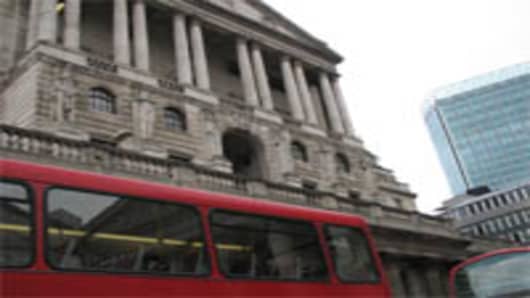If the monetary policy committee of the Bank of England were paid a performance bonus, its members would deserve nothing. The UK’s inflation outcome has been far from target over a long period. So should the MPC raise rates now to make up for its past failures? No. But its position is becoming very uncomfortable.
The news that the increase in the consumer price index was 4.5 percent in the 12 months to April underlined the MPC’s failure. The compound annual rate of inflation has been 4.1 percent over the past two years and 3 percent over the past six.
This is a dismal performance, particularly given the severity of the recession. But performance has not been hopelessly bad: since the beginning of the 2000s, inflation has been just 2.3 percent.
However disappointing recent performance has been, something extremely dangerous has not happened: inflation expectations have not jumped.
The expectations implied by the gap between the yield on conventional and index-linked bonds are even below their average since early 2006. Just as comforting is the fact that the yield on 10-year conventional bonds is 3.4 percent.
Americans worried about the impact of the end of the Federal Reserve’s quantitative easing on US treasury bonds should also take heart. The end of the Bank of England’s similar programme, in early 2010, brought no noteworthy rise in UK bond yields.
Yet, it can be argued, expectations are not going to remain well under control if inflation overshoots the target forever. This is certainly right. Moreover, when they do shift, the cost of bringing them back under proper control might be heavy.
Given this, it is easy to make arguments in favour of raising interest rates quite soon. The base rate of interest is still very low, at 0.5 percent.
Markets expect the base rate to rise this year, but only to 0.8 percent in the fourth quarter, as the Bank’s latest Inflation Report notes. Real wages are being squeezed, which may generate pressure for higher wages.
Excess capacity may be smaller and the growth of capacity slower than most hoped at the depth of the recession, partly because of the impact of the recession itself and partly because much of the previous capacity may have been an illusion.
Moreover, the rise in commodity prices may be no one-off event but rather a trend. Above all, the overshooting of the inflation target itself is sure to last into 2012 and probably into 2013.
Given all this, a rise in the base rate might indicate that the Bank takes its target seriously.
Indeed, such arguments led two members of the MPC to vote for a ¼ percentage point rise and one – the outgoing member, Andrew Sentance – for a ½ point rise at the May meeting.
These arguments are far from worthless. But there are powerful counter-arguments, too. Commodity prices are volatile and may indeed already have passed their peak in the current cycle. The annual growth of labor earnings is 2.3 percent.
One has to be very gloomy indeed about the economy’s long-term productivity trends, to believe that unit labour costs are set to rise at a faster rate than the 2 percent target for consumer price inflation.
The economy has remained very weak, with a 0.5 percent rise in gross domestic product in the first quarter of this year after a 0.5 percent decline in the last quarter of 2010.
GDP is still 4 percent below its level in the first quarter of 2008. The fiscal squeeze is set to continue until the end of this parliament. Broad money has even been shrinking since early 2010. Unemployment has also been quite close to 8 percent since the middle of 2009.
One has to be pessimistic to think this level insufficient to subdue inflation. To raise interest rates merely because the MPC has failed to hit its target in the past would be folly.
To raise rates because it will overshoot the target over the next year would be just about as stupid. Bygones are bygones. There are, in fact, only three reasons for raising rates that seem to be worth considering.
The first is that it is necessary to strengthen confidence. But when confidence seems robust already, that is close to pure sadism.
The second is that the MPC does not understand the inflationary process in the UK as well as it thought, but does know that its errors have been consistently on the upside. Yet the overshooting is not inexplicable: it is largely explained by external price developments.
The third argument is that we have good reason to expect a consistent rise in the dollar prices of commodities that must be offset either by a stronger sterling or by a reduction in domestically generated inflation, particularly wages.
But it is not yet clear we should expect such a trend, from current levels. The present position is very uncomfortable indeed. But, in all, the arguments for not raising rates still seem stronger than the arguments for doing so.
But the decision is hard to make. If the rise in unit labor costs or expected inflation drifts upwards, higher interest rates are inevitable, but the case to raise rates today is not overwhelming.
The MPC can afford to wait and see.


